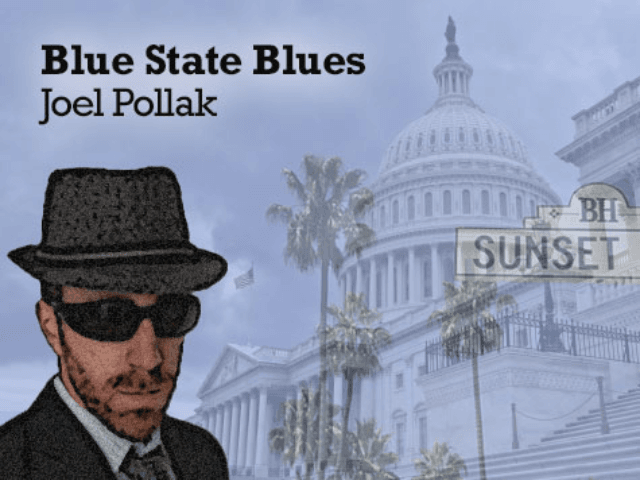Sen. Ted Cruz (R-TX) set a powerful example for conservatives, and all Americans, this week: he forgave Donald Trump for personal attacks during the Republican primary.
Perhaps Cruz should have done so before the Republican convention in July. And perhaps he has his own political ambitions in mind. Nevertheless, it is never too late to do the right thing. And it is better to do the right thing, even if for the wrong reason, than not. Trump should do the same — as should we all, in our own lives.
This Sunday through Tuesday evening, we Jews will celebrate Rosh Hashanah, the Jewish New Year. Traditionally, the weeks leading up to Rosh Hashanah are a time for moral reflection, and for asking forgiveness from those whom we may have wronged during the course of the year, as well as from God. The annual process of repentance and reconciliation accelerates on Rosh Hashanah, and culminates on the fast day of Yom Kippur, the Day of Atonement, ten days later (Oct. 11-12).
Earlier this year, in the throes of a Twitter debate about the alt-right, Commentary‘s John Podhoretz pulled religious rank on me, telling me I’d have much to repent for this Yom Kippur. I laughed it off at the time, but it’s not an unfair question to ask oneself: Have I said or done anything to wrong others, in this contentious year?
I’ve thought about that, and in the spirit of the season, I’ve written to several people to apologize — regardless of whether they reciprocate. (I’ve had a couple of nice replies.)
I’ve also decided to forgive people for things they said in anger, or in error. There is little point to holding grudges, especially political ones. I’ve tangled often with the NeverTrump crowd on Twitter, for example, but when I look at some of their posts, I find I agree with 99% of everything else most of them write.
If people who share that much in common cannot look past a single political disagreement, then there is little hope for the conservative movement — or for America as a whole, frankly.
My friend Guy Benson wrote a column recently considering the question of blame, in the event that Donald Trump loses the election in November (though it looks, increasingly, like his chances are improving). Guy was defending himself, and other critics of Trump, from the argument that they will be to blame, so I do not want to be harsh in criticizing his approach. And I agree with him: if Trump loses, it won’t be NeverTrump’s fault. (There are too few of them in any case.)
But I disagree with Guy when he argues that others should, in fact, be blamed instead — “[t]hose who actively aided and abetted Trump’s rise, and who used their conservative credibility to promulgate the fiction that he is something other than what he has clearly demonstrated himself to be over several decades of public life.” He adds later: “A Trump loss would rest squarely on the shoulders of the candidate, his campaign, and the people who thought it was a good idea to nominate him” (emphasis added).
It is unclear to me why people who simply argue for a candidate bear moral culpability. People have the right to advocate and vote for a candidate. We are allowed to be wrong.
Guy’s argument would make more sense on the Democratic side, where the party leaders actively colluded to ensure no one but Hillary Clinton could win the nomination. They are morally responsible if she loses — and also if she wins. But Trump ran against the party. He won the nomination with votes alone.
It is difficult to see what benefit can come from assigning blame to either side of the pro-Trump/NeverTrump divide. Politics is ultimately a game of numbers: why would you want fewer allies?
There is more to gain from forgiveness than from blame. I would save moral outrage for those people — thankfully, few — who behave dishonestly in pushing their views, or who insist on personal attacks rather than political arguments. (And even they deserve a chance — not indefinite, mind you — to repent.)
After all, there is more that unites us conservatives than divides us, and the fights are both exhausting and pointless. Norman Podhoretz recently came out for Trump; is John Podhoretz expected to dismiss his own father? It seems best for conservatives to forgive — and to start now, before the election. Winning, of course, would help our divisions to subside, if not disappear.
Regardless, forgiveness has the moral power to strengthen us, and our country — if we have the courage to offer and seek it.
Joel B. Pollak is Senior Editor-at-Large at Breitbart News. His new book, See No Evil: 19 Hard Truths the Left Can’t Handle, is available from Regnery through Amazon. Follow him on Twitter at @joelpollak.

COMMENTS
Please let us know if you're having issues with commenting.